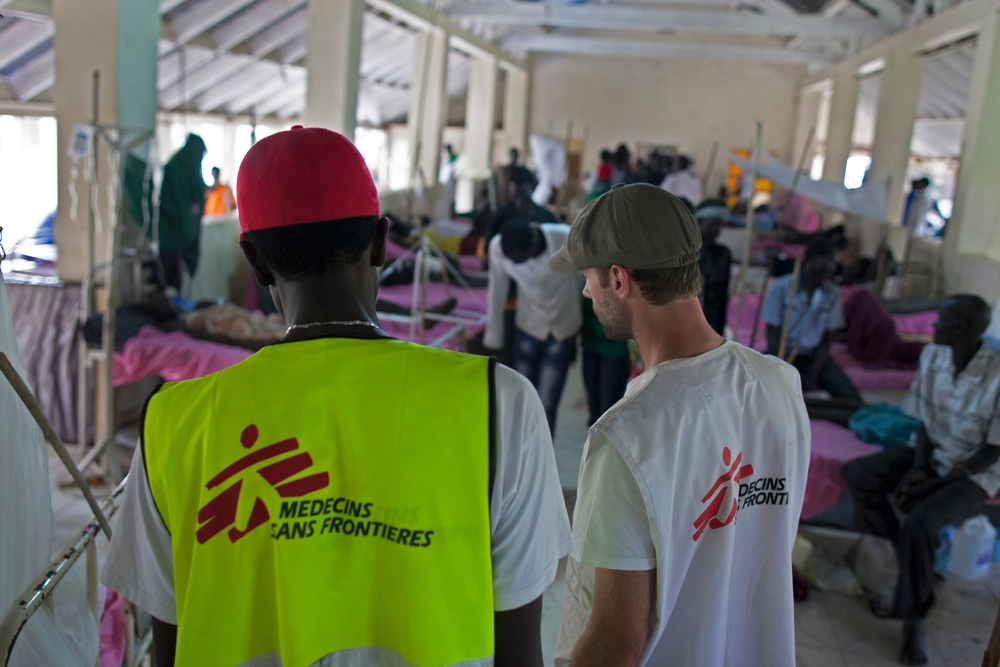Hospital facility manager
Currently, the needs for these field positions are limited. Therefore, candidates who fulfill the essential requirements as well as some of the desirable criteria are more likely to match the profile sought at the present time.
As hospital facility manager, you and your team ensure the continuity of the infrastructure services in the hospital and enable an environment for quality health care.
The hospital facility manager prepares, implements and assures follow-up of structure maintenance strategy, creates and implements safety plans, and efficiently manages resources (HR, financial, assets). All of the former activities, following the MSF standards and procedures.
In the position of the hospital Facility manager you will be part of the hospital management team and you will be working closely together with the medical team to understand their needs and priorities. You will report to the Hospital manager and you will be supervising the technical team, the biomedical specialist, water –and sanitation specialist, energy specialist and maintenance specialist, and other positions as required.
The responsibilities of the Hospital Facility Manager include:
- Coordinating all of the hospital’s technical activities. This includes the planning of maintenance activities in construction, energy (sources and distribution), HVAC/CVC, water and sanitation, IT and Telecom, safety equipment and systems and biomedical equipment.
- Supporting the management of medical waste, cold chain, direction signage planning.
- Ensuring compliance with quality standards regarding the hospitals technical activities.
- Ensuring that fire prevention and occupant safety measures are in place.
- Managing the contact with external contractors.
Team management
- Managing a team of technicians.
- Implementing maintenance management tools.
- Planning and supervising the human resources in the hospital facilities team including recruitment, training, performance management and evaluation, staff development, internal communications etc..
prerequisites
- Degree in engineering or equivalent or degree in facility management
- Strong technical background and good management capacity
- 2 years of relevant professional experience in healthcare or hospital facility management and in managing teams
- Experience with other NGOs in developing countries is desirable
- Adhere to the MSF Charter and to our managerial values: Respect, Transparency, Integrity, Accountability, Trust and Empowerment
- Adhere to our Behavioral Commitments
-
Willingness to leave on mission without your partner and/or family and to work in an unstable environment
- Good French and English language skills
length of mission
- 6 to 12 months
Meet our hospital facility managers
Gordian, our hospital facility manager, shares his tasks and challenges from his first mission in Lebanon.
Did you know
- MSF runs hospitals with a capacity of 40 to 250 beds, either in collaboration with the various ministries of health or autonomously.
- MSF builds and refurbishes existing facilities and installs all the biomedical equipment and all the equipment needed to ensure our energy and potable water supply, treat our waste and sewage, and communicate with the outside.
- We manage and then maintain these hospitals over the short-term (< 6 months), medium-term (< 3 years) or long-term (> 3 years) depending on operational needs.
- We always work in collaboration with local teams which we train to operate these hospitals.
- 40% of MSF staff have a non-medical profile, such as the Health Facility Manager.
Working in the field vs working in a company
- Your responsibilities are not just limited to the technical aspects of the project. You quickly take on additional responsibilities concerning technical aspects, the management of your team and the project’s overall goals.
- The multicultural element will increase your ability to adapt.
- You have the opportunity to train and develop your staff by helping them build their career paths.
- The organization offers a wide variety of contexts, and a real career with positions that will evolve with your experience and potential.

